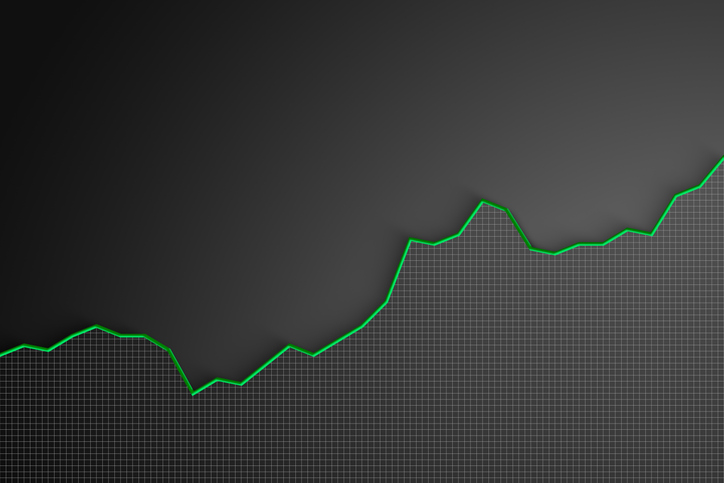3 Reasons to Buy GE Stock in Retirement
Stocks for retirees don’t get much bluer than blue-chip General Electric (symbol GE).


Profit and prosper with the best of Kiplinger's advice on investing, taxes, retirement, personal finance and much more. Delivered daily. Enter your email in the box and click Sign Me Up.
You are now subscribed
Your newsletter sign-up was successful
Want to add more newsletters?

Delivered daily
Kiplinger Today
Profit and prosper with the best of Kiplinger's advice on investing, taxes, retirement, personal finance and much more delivered daily. Smart money moves start here.

Sent five days a week
Kiplinger A Step Ahead
Get practical help to make better financial decisions in your everyday life, from spending to savings on top deals.

Delivered daily
Kiplinger Closing Bell
Get today's biggest financial and investing headlines delivered to your inbox every day the U.S. stock market is open.

Sent twice a week
Kiplinger Adviser Intel
Financial pros across the country share best practices and fresh tactics to preserve and grow your wealth.

Delivered weekly
Kiplinger Tax Tips
Trim your federal and state tax bills with practical tax-planning and tax-cutting strategies.

Sent twice a week
Kiplinger Retirement Tips
Your twice-a-week guide to planning and enjoying a financially secure and richly rewarding retirement

Sent bimonthly.
Kiplinger Adviser Angle
Insights for advisers, wealth managers and other financial professionals.

Sent twice a week
Kiplinger Investing Weekly
Your twice-a-week roundup of promising stocks, funds, companies and industries you should consider, ones you should avoid, and why.

Sent weekly for six weeks
Kiplinger Invest for Retirement
Your step-by-step six-part series on how to invest for retirement, from devising a successful strategy to exactly which investments to choose.
Stocks for retirees don’t get much bluer than blue-chip General Electric (symbol GE). After all, it’s the only remaining member of the original Dow Jones industrial average. GE’s current strategy is to focus on its industrial roots, manufacturing everything from locomotives to jet engines to power generators and more. That doesn’t mean, however, that it intends to be stuck in the past. It’s also reconfiguring itself to be a centerpiece of the 21st-century industrial sector. That gives retirees a way to invest in both the slow-but-steady growth of the old economy and the more explosive growth found in the high-tech future. Here are three reasons that GE looks like a great fit for a retirement portfolio.

New Strategy
GE sold off most of its financial businesses and merged its oil operations with Baker Hughes to form a separate publicly traded company. Those moves help GE distance itself from risks in the financial sector, as well as from low oil prices. GE is now a more streamlined conglomerate and its fortunes are clearly tied to the industrial sector. That makes it easier for investors to both understand and value.
At the same time, GE is investing in newer, high-tech products and processes. It aims to generate enough revenue from software to be a top-10 company in the software industry by 2020. It’s also taking stakes in or acquiring business in the fields of 3D printing, robotics and renewable energy, among other endeavors.

Fair Price
GE’s stock isn’t a bargain, but neither does it look overpriced. Shares trade at 19 times expected earnings for 2017, with earnings forecast to rise 11%, according to a survey by Zacks Investment Research. Standard & Poor’s 500-stock index trades at 17 times expected earnings on a 2017 growth forecast of 9%. When it comes to value, GE’s superior growth prospects give it the edge, despite its higher P/E.
GE is also the better buy because of its dividend. The yield on GE stock is 2.9%; the S&P’s yield is just 2.1%. Analysts, on average, expect the stock to outperform the broader market in 2017.

Returning Cash to Shareholders
Having paid a dividend every quarter for more than a century, GE’s stock is an income stream investors can count on. Dividend hikes paused from the fourth quarter of 2014 until the fourth quarter of 2016 because GE was focused on shedding its financial businesses. Last year, however, the company did repurchase $18 billion in stock through the third quarter. Reducing the number of shares outstanding gives remaining shareholders a bigger slice of the company’s profits. And GE has pledged to distribute more of the proceeds from asset sales to investors via $28 billion in dividends through the end of 2018. That’s a boost from the $8 billion in dividends it disbursed last year. It also plans to spend $12 billion on stock buybacks over the next two years.
Profit and prosper with the best of Kiplinger's advice on investing, taxes, retirement, personal finance and much more. Delivered daily. Enter your email in the box and click Sign Me Up.

Dan Burrows is Kiplinger's senior investing writer, having joined the publication full time in 2016.
A long-time financial journalist, Dan is a veteran of MarketWatch, CBS MoneyWatch, SmartMoney, InvestorPlace, DailyFinance and other tier 1 national publications. He has written for The Wall Street Journal, Bloomberg and Consumer Reports and his stories have appeared in the New York Daily News, the San Jose Mercury News and Investor's Business Daily, among many other outlets. As a senior writer at AOL's DailyFinance, Dan reported market news from the floor of the New York Stock Exchange.
Once upon a time – before his days as a financial reporter and assistant financial editor at legendary fashion trade paper Women's Wear Daily – Dan worked for Spy magazine, scribbled away at Time Inc. and contributed to Maxim magazine back when lad mags were a thing. He's also written for Esquire magazine's Dubious Achievements Awards.
In his current role at Kiplinger, Dan writes about markets and macroeconomics.
Dan holds a bachelor's degree from Oberlin College and a master's degree from Columbia University.
Disclosure: Dan does not trade individual stocks or securities. He is eternally long the U.S equity market, primarily through tax-advantaged accounts.
-
 5 Investing Rules You Can Steal From Millennials
5 Investing Rules You Can Steal From MillennialsMillennials are reshaping the investing landscape. See how the tech-savvy generation is approaching capital markets – and the strategies you can take from them.
-
 The Tool You Need to Avoid a Post-Divorce Administrative Nightmare
The Tool You Need to Avoid a Post-Divorce Administrative NightmareLearn why a divorce decree isn’t enough to protect your retirement assets. You need a QDRO to divide the accounts to avoid paying penalties or income tax.
-
 When Estate Plans Don't Include Tax Plans, All Bets Are Off
When Estate Plans Don't Include Tax Plans, All Bets Are OffEstate plans aren't as effective as they can be if tax plans are considered separately. Here's what you stand to gain when the two strategies are aligned.
-
 States That Tax Social Security Benefits in 2026
States That Tax Social Security Benefits in 2026Retirement Tax Not all retirees who live in states that tax Social Security benefits have to pay state income taxes. Will your benefits be taxed?
-
 Markets Are Quiet Ahead of Fed Day: Stock Market Today
Markets Are Quiet Ahead of Fed Day: Stock Market TodayInvestors, traders and speculators appear to be on hold amid an unusually fraught Fed meeting.
-
 DexCom, GE, SLB: Why Experts Rate These Stocks at Strong Buy
DexCom, GE, SLB: Why Experts Rate These Stocks at Strong BuyWall Street gives these three diverse names Strong Buy recommendations with high potential upside.
-
 The Best Aerospace and Defense ETFs to Buy
The Best Aerospace and Defense ETFs to BuyThe best aerospace and defense ETFs can help investors capitalize on higher defense spending or hedge against the potential of a large-scale conflict.
-
 AI vs the Stock Market: How Did Alphabet, Nike and Industrial Stocks Perform in June?
AI vs the Stock Market: How Did Alphabet, Nike and Industrial Stocks Perform in June?AI is a new tool to help investors analyze data, but can it beat the stock market? Here's how a chatbot's stock picks fared in June.
-
 Stock Market Today: Stocks Rise on Less Deadly Concerns
Stock Market Today: Stocks Rise on Less Deadly ConcernsMarkets are forward-looking mechanisms, and it's good when price action shows there's a future to look forward to.
-
 Stock Market Today: Stocks Soar on China Trade Talk Hopes
Stock Market Today: Stocks Soar on China Trade Talk HopesTreasury Secretary Bessent said current U.S.-China trade relations are unsustainable and signaled hopes for negotiations.
-
 What to Do With Your Tax Refund: 6 Ways to Bring Growth
What to Do With Your Tax Refund: 6 Ways to Bring GrowthUse your 2024 tax refund to boost short-term or long-term financial goals by putting it in one of these six places.
